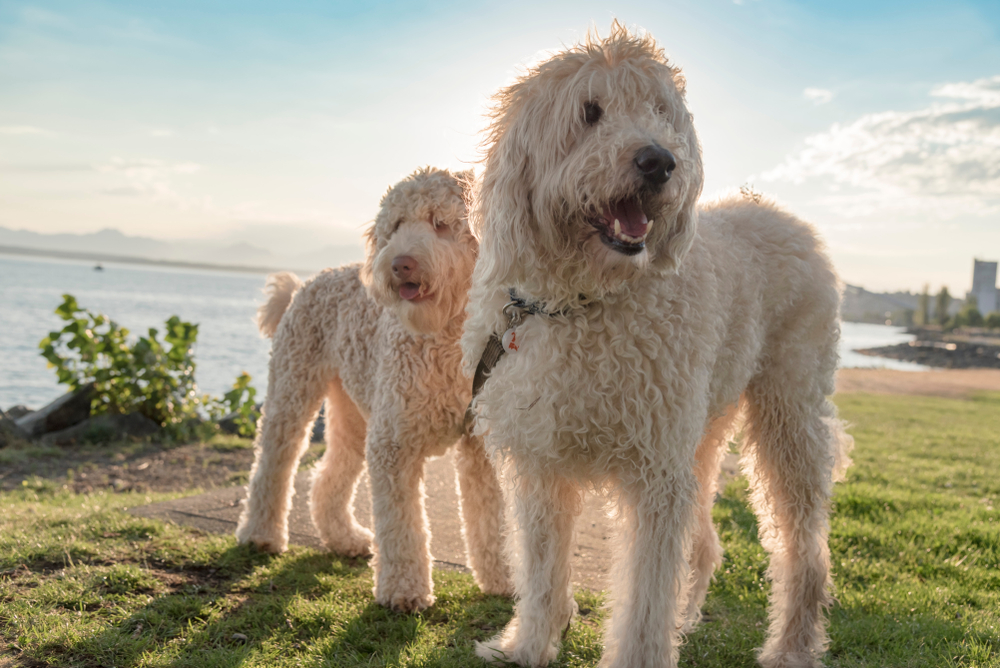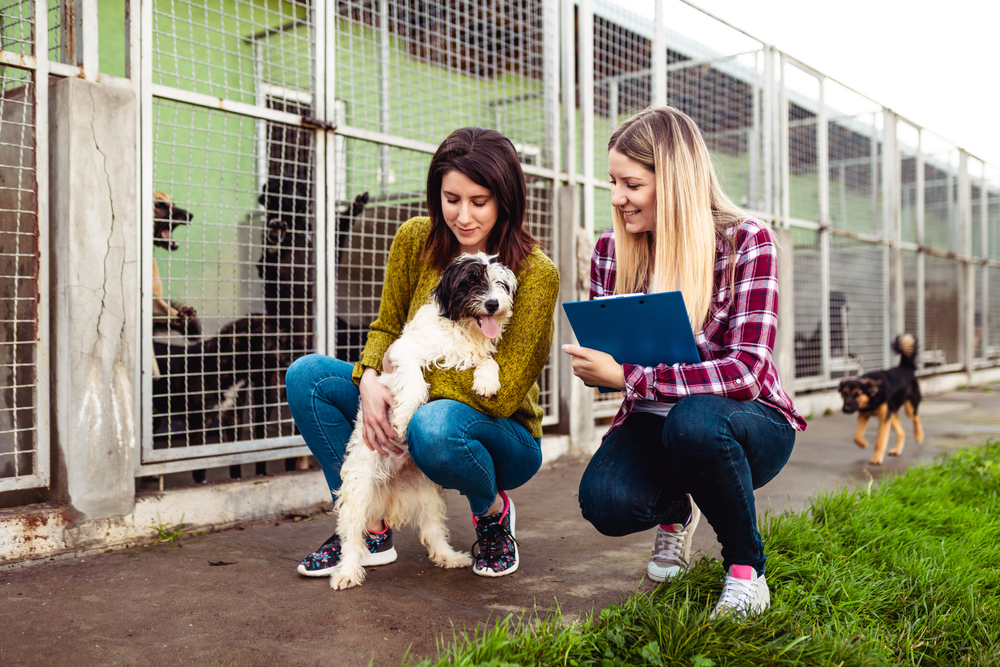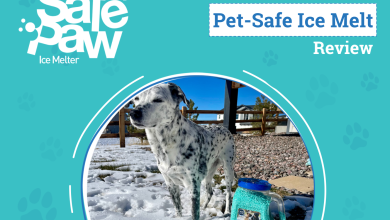
The first intentionally bred Doodle appeared in 1989, and their popularity quickly rose in the 1990s. Today, you can find all kinds of dog breeds that have been bred with a Poodle, and you can now see Doodles of all shapes, colors, and sizes.
Doodles are adorable and make wonderful companion dogs, but both dog lovers and advocates have mixed feelings about them. Doodles themselves aren’t unethical, but they’re associated with unethical breeding practices and inhumane treatment of dogs. If you want to bring home a Doodle, it’s important to do your own research so that you support responsible breeding and bring home a happy and healthy puppy.


What Are Doodles?
Doodles are mixed-breed dogs that involve a Poodle and another purebred dog. Toy, Miniature, and Standard Poodles can all be bred to produce Doodles. These are some of the most common and popular Doodles you’ll come across:
- Labradoodle (Labrador Retriever and Poodle)
- Goldendoodle (Golden Retriever and Poodle)
- Cockapoo (Cocker Spaniel and Poodle)
- Maltipoo (Maltese and Poodle)
- Yorkiepoo (Yorkshire Terrier and Poodle)
The main allure of Doodles is that they’re meant to be hypoallergenic dogs. In fact, the first documented Doodle was a Labradoodle who was intentionally bred to be a guide dog for someone who had dog allergies. Labrador Retrievers have the temperament to become successful service animals, but they’re heavy shedders. Poodles have intelligence, but they’ve often been too energetic to become a seeing-eye dog. So, the Labradoodle was bred in the hopes of finding a happy medium.




Doodle Controversies
Much controversy surrounds Doodles, and some animal rights activists believe it’s unethical to breed them. Here are just a few reasons why people are against breeding Doodles.
False Advertisement
Doodles have become even more desirable due to false advertisements. They’re often marketed as 100% hypoallergenic dogs that are suitable for allergy sufferers. While some Doodles may shed less, there’s no such thing as a completely hypoallergenic dog. People get allergic reactions to proteins found in a dog’s saliva, urine, and skin cells. Therefore, just because a dog sheds minimally, it doesn’t mean that people won’t get allergic reactions from them.
It’s also important to note that all Doodles will shed to some degree, and some may even be moderate shedders. Unless they inherit the Poodle’s coat, they’re more likely to shed more.
Hybrid dog breeds are also often marketed as healthier than purebred dogs. However, you’re more likely to bring home an unhealthy Doodle if they were raised in a puppy mill or by an irresponsible breeder. Some breeders may mass-breed pups from dogs with genetic defects like luxating patellas or cryptorchidism.
Unethical and Irresponsible Breeding Practices
Doodles skyrocketed to popularity due to their cute appearance and the belief that they’re hypoallergenic dogs. The increased demand for Doodles unfortunately gave way to unethical breeders who began to breed large quantities of Doodles with the sole purpose of making a profit.
Irresponsible breeding leads some dogs to living in inhumane conditions while being unable to receive the proper love and care that they need to thrive. Parents of doodles in puppy mills usually experience social isolation from humans, untreated diseases, and improper living conditions that has a significantly negative impact on their quality of life.


Improper Care
Poodles are known to have extensive grooming needs. Their coats are prone to tangling and matting, and they must be brushed daily with a set of different dog brushes. Poodles are also prone to getting ear infections because of their long ears.
Many Doodles are marketed as good dogs for first-time dog owners. However, many novice dog owners become overwhelmed by maintaining their coats. Many Doodles end up with severe mats, which can cause skin irritation and infections.


How to Protect Doodles
There’s no denying that Doodles are wonderful dogs that are deserving of living a good life. While it’s highly unlikely for Doodles to go away completely, we can still take action to protect them.
Adopt, Don’t Shop
First, choose to adopt a Doodle rather than buy one from a pet store. Many Doodles end up in animal shelters and rescues, and they’re waiting to be adopted into their forever homes. If you want to bring home a Doodle puppy from a breeder, make sure to work only with responsible breeders.


Work With Ethical Breeders
Fortunately, you can find several ethical Doodle breeders who are passionate about their work and care deeply for all their dogs and puppies. Reputable Doodle breeders usually have a vetting process to ensure their puppies go to loving homes. They won’t be overly eager to sell their puppies to you, and they’ll be willing to answer questions you have about their dogs. Responsible breeders will also be able to show you their puppies’ vet records and have health contracts to ensure you bring home a healthy Doodle puppy.
Advocate for Animal Rights
There are many noble animal rights organizations that advocate for the humane treatment of dogs. They often fight against inhumane puppy mills and work to rescue dogs from abusive or neglectful living conditions. They also support and raise awareness for beneficial policies for dogs and other animals. You can get involved with their work by volunteering, donating, or spreading the word about their cause.


Conclusion
It’s unfortunate that innocent dogs are exploited for the sake of making a profit. However, you can help prevent the mistreatment of Doodles and unethical breeding practices in several ways. Choose to adopt Doodles from adoption centers rather than purchasing one from a pet store. Make sure to always vet breeders thoroughly before buying one of their Doodles. Lastly, take time to research a Doodle’s temperament and care needs to ensure that you bring home a dog that matches your lifestyle and that you can care for adequately.
Featured Image Credit: SeaRick1, Shutterstock



